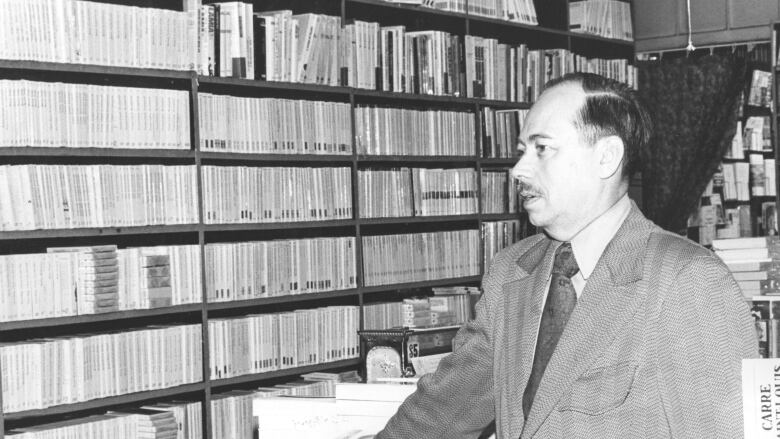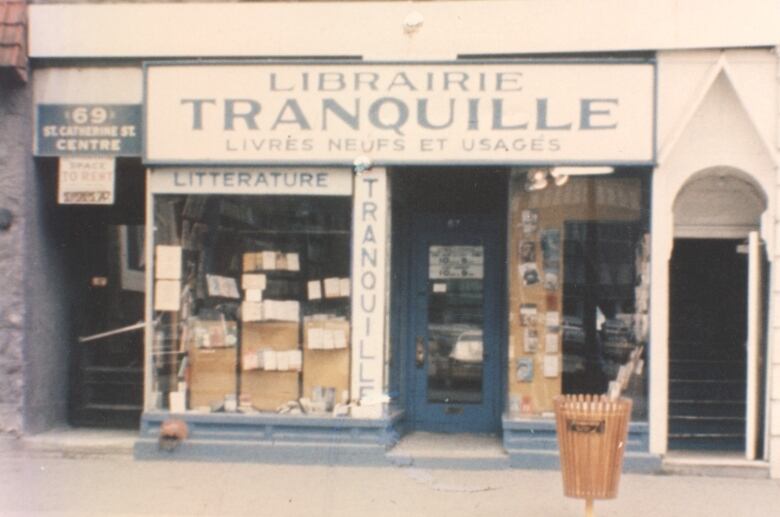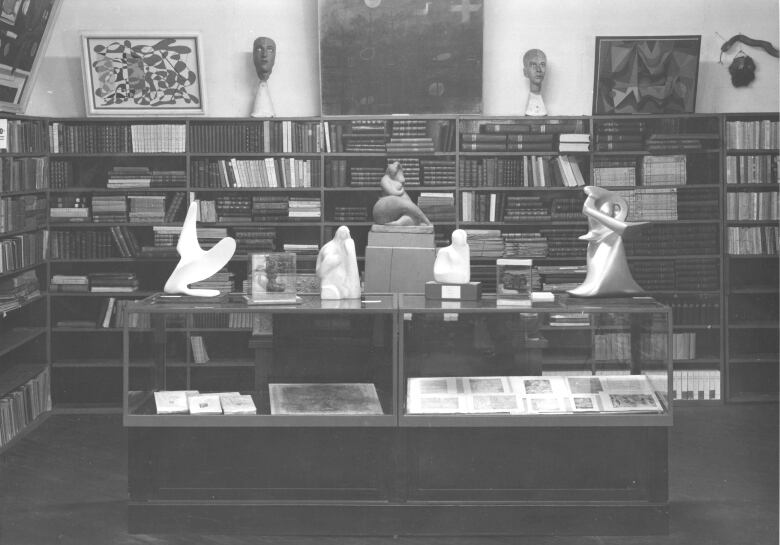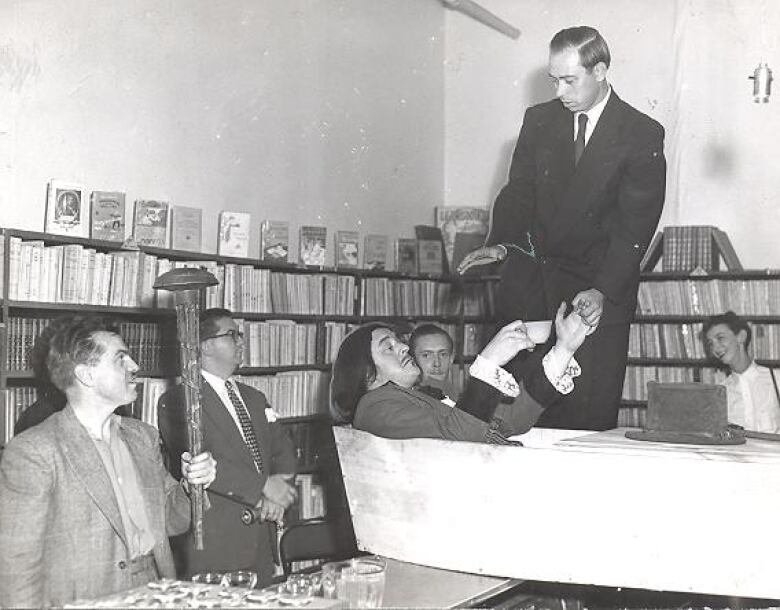Meet Henri Tranquille, whose name Montreal has given to a new public space
Tranquille's bookstore on Ste-Catherine Street is where 16 artists met to launch the historic Refus global

The public spacetemporarily called Esplanade Clarknow has a new name: Esplanade Tranquille.
Montreal MayorValrie Plante announced Wednesday the public space behind the Montreal police headquarters, west of Clark Street and just north of Ste-Catherine Street, will be named after Quebec writer Henri Tranquille, who owned abookstore on that stretch of Ste-Catherinein the 1940s.
"The new name pays homage to Librairie Tranquille and its owner, Henri Tranquille, who contributed to the richness of the history and the culture of the city," said Plante.
Tranquille's bookstore was the place where an influential group of young artists and intellectuals gathered in 1948 to launch theirRefus global amanifesto rejecting the power of the Catholic church in Quebec and calling for the liberation of Quebec society.

The city now plans to renovate thespace named after Tranquille to include anoutdoor skating rink in the winter and an urban terrasse in the summer. Plante said the newly configured Esplanade Tranquillewill open next year.
"It embodies the development vision of the Quartier des Spectacles, which is to live, create, learnand be entertained in the city centre," said Plante.

Hub for Quebec's artistic and literary avant-garde
Librairie Tranquille opened its doorson May 8, 1948 at67 Ste-Catherine Street West.
It soon became a gathering place for Quebec's artistic and literary avant-garde.
The bookstore frequently featured exhibitions of sculptures and paintings by emerging artists likesculptor Robert Roussil andpaintersPaul-mile Borduas, Marcelle Ferron and others.

As a creative hub, the bookstore was a magnet foryoung, intellectualQuebecers questioning the values of traditional society. Sixteen of them signed theRefus global, whichcalled for a total rejection of all conventional thinking and advocated for a freedom of ideas.
Oneof the most influential artistic and socialdocuments in Quebec's modern history, itwasdistributed at the bookstore.
The artists' denunciation of the authority of the Catholic Church was a scandalous position atthe time. But their ideas ushered in modern Quebec society and set the stage for the Quiet Revolution.
Tranquille drew sharp criticismfrom some prominent members of Quebec society for his liberal political views including from members of the Catholic clergy.
In a letter to Tranquille in 1949, Monsignor Albert Valois, the director of the Diocesan Committee for Catholic Action, implored the bookstore owner to remove from his shelves the works of French author mile Zola.
Valois also condemned Tranquillewhen the bookstore owner threw anextravagant party in memory of Honor de Balzac onthe 100thanniversary of his deathin August 1950.
As the Quiet Revolution took holdand Quebec became a modern society, the bookstore became increasingly irrelevant. It declared bankruptcy in 1975.













_(720p).jpg)


 OFFICIAL HD MUSIC VIDEO.jpg)
.jpg)



























































































